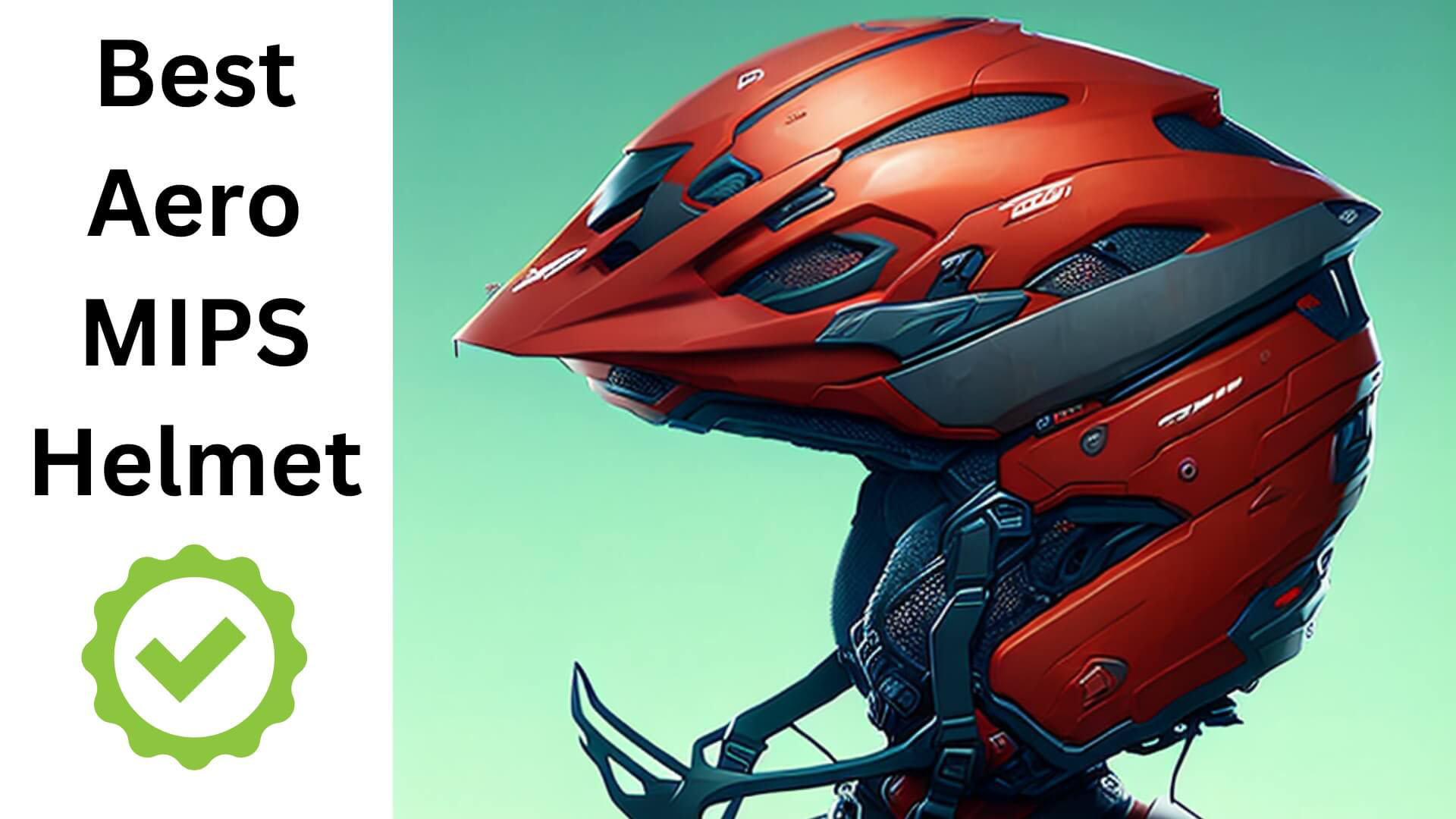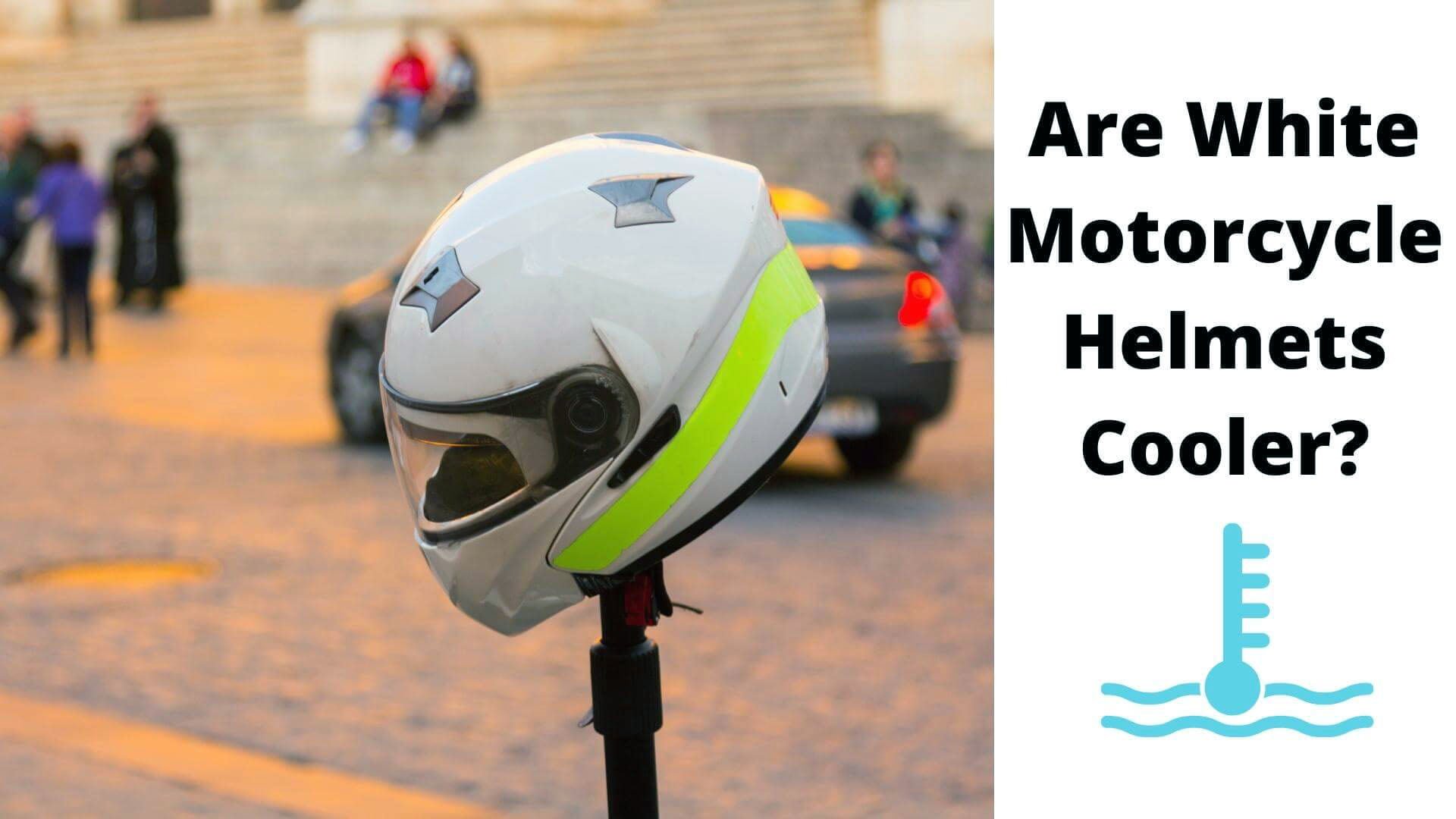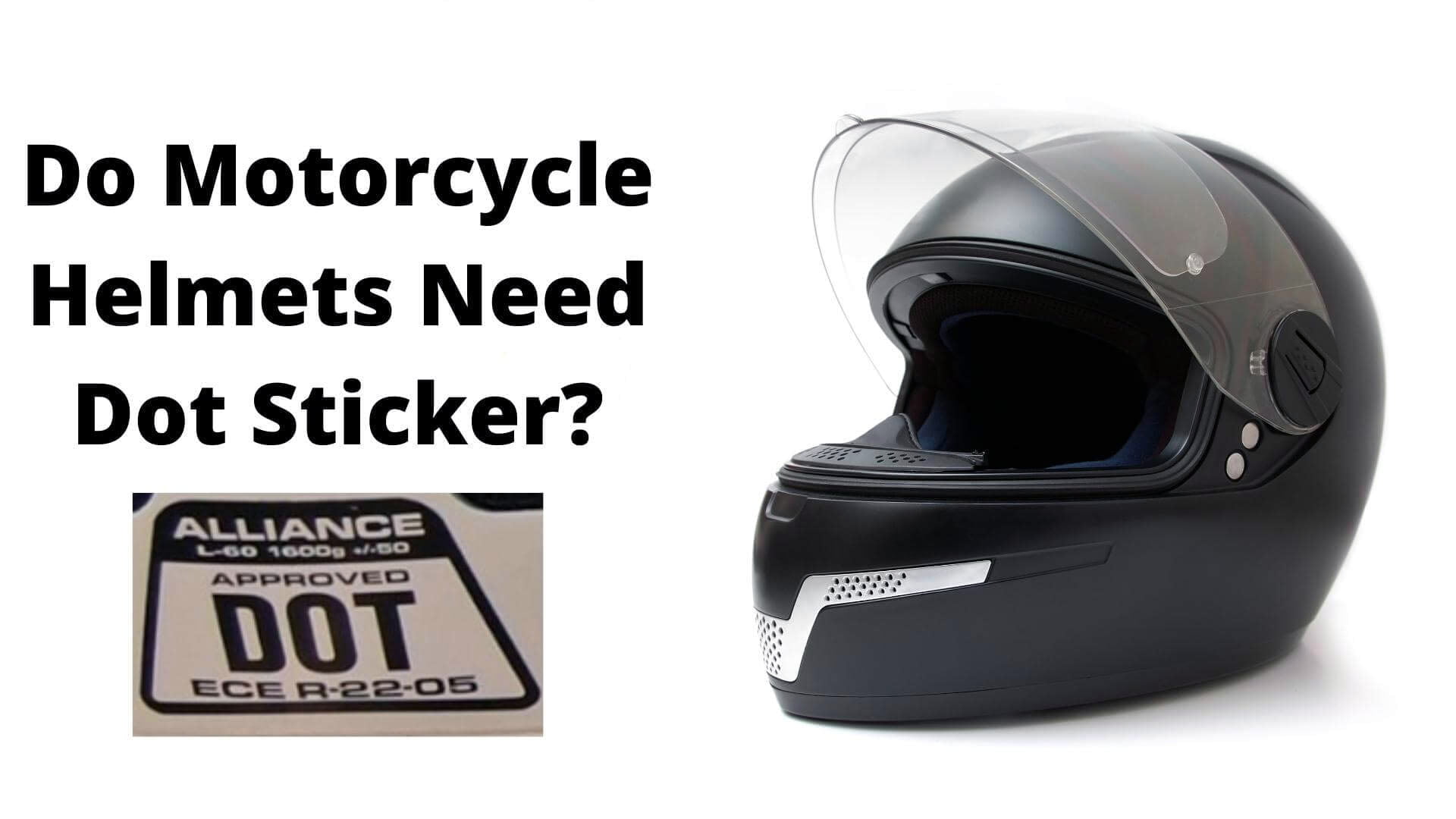How Much Does a Motorcycle Helmet Weigh? Here Are The Stats!

A motorcycle helmet is an essential piece of safety gear for any rider. But how much does a motorcycle helmet weigh? The average weight of a motorcycle helmet is about 3 pounds.
However, the importance of a motorcycle helmet can vary depending on the size, style, and materials used.
Wearing a motorcycle helmet can help protect riders from severe injuries during a crash. Motorcycle helmets are required to meet specific safety standards to be effective.
Motorcycle helmets are classified into full-face, open-face, and half-face. Each type of helmet has features that can provide different levels of protection.
No matter what type of motorcycle helmet you choose, wearing one is always better than not wearing one at all. So if you’re looking for the best protection possible while riding, choose a helmet that fits well and meets all the necessary safety standards.
What is the Weight of a Motorcycle Helmet?
The weight of a motorcycle helmet is not the most crucial factor when looking for a helmet. The importance of a motorcycle helmet is usually around 3 pounds, but it can vary based on size and design. On average, a full-face motorcycle helmet weighs 3 pounds and 16 ounces.
Motorcycle helmets are designed to protect riders from head injuries during a crash. They are required by law in some jurisdictions and recommended by many safety organizations.
It is essential to keep in mind that this weight is only for the helmet itself. The importance of the rider’s body and clothing will also affect the total weight of the motorcycle.
What You Should Know About The Importance of Helmet Weight?
Motorcycle helmets are essential safety equipment and play an important role in preventing head injuries. In some states, helmets are required by law, and choosing a correctly fitted helmet for your head size is essential.
An adequately fitted motorcycle helmet should fit snugly but not too tight. It should also be lightweight so that you don’t feel overly burdened while wearing it.
There are a few factors to consider when choosing a motorcycle helmet: the type of helmet you’re buying, the material from which it is made, and the size of your head.
When selecting a light motorcycle helmet, be aware that weight may not be as important as other factors, such as protection and ventilation.
On the other hand, if you have a large head or tend to ride with heavy clothing on, a heavier motorcycle helmet may be more appropriate.
When shopping for a motorcycle helmet, try on several different models in different sizes to find one that fits snugly but doesn’t cause discomfort or headaches.
Always wear your motorcycle helmet when riding; even if you don’t think it’s necessary, it could help reduce your risk of injury in case of an accident.
Check Also: Gopro Illegally On Motorcycle Helmets? Here’s What You Need To Know
What is Motorcycle Helmet Weight Factors?
Materials used in Shell Constructions:
A motorcycle helmet protects your head in a crash or collision. The materials used in the construction vary based on the helmet’s brand, model, and price.
For example, the ECE-rated Bell Eliminator Carbon helmet weighs roughly 2.4 pounds (crazy!) and has a carbon fiber shell. On the other hand, Bell Qualifier weighs approximately 3.7 lbs, has a Polycarbonate shell, and is significantly less expensive. Some examples of helmet shell materials include:
- Carbon fiber shell: Extremely lightweight
- Fiberglass body: Compact
- Polycarbonate shell: Not relatively lightweight
The type of EPS foam used:
The type of EPS foam used also affects the weight of the helmet. Different types of EPS foam have different densities so a softer foam will be lighter than a helmet with more rigid foam.
Sizes of Helmets:
As you might guess, the weight of a helmet is determined by its size. Motorcycle helmets are available in extra small to 3XL sizes, with some helmets going up to 5XL.
Furthermore, most high-quality helmets come in more than one shell size, allowing you to get a great fit while remaining safe. Consider the AGV K6 helmet, which is available in four shell sizes.
Accessories And Internal Padding:
Inner padding in helmets and accessories like Bluetooth can mean the difference between a light and a big helmet. Many helmets include internal safety features such as MIPS, as seen in the Bell Star DLX MIPS Helmet.
Furthermore, Bluetooth helmets frequently have the speakers and com unit pre-installed within the helmet. Take the Sena Outrush Helmet, for instance, which has a Bluetooth device built in but isn’t the lightest helmet available.
Motorcycle Helmet Types and Weight Ranges
There are three leading motorcycle helmets: full-face, open-face, and half-helmet. Each type of helmet has features that can provide different levels of protection.
Full-Face Helmets Weight Ranges
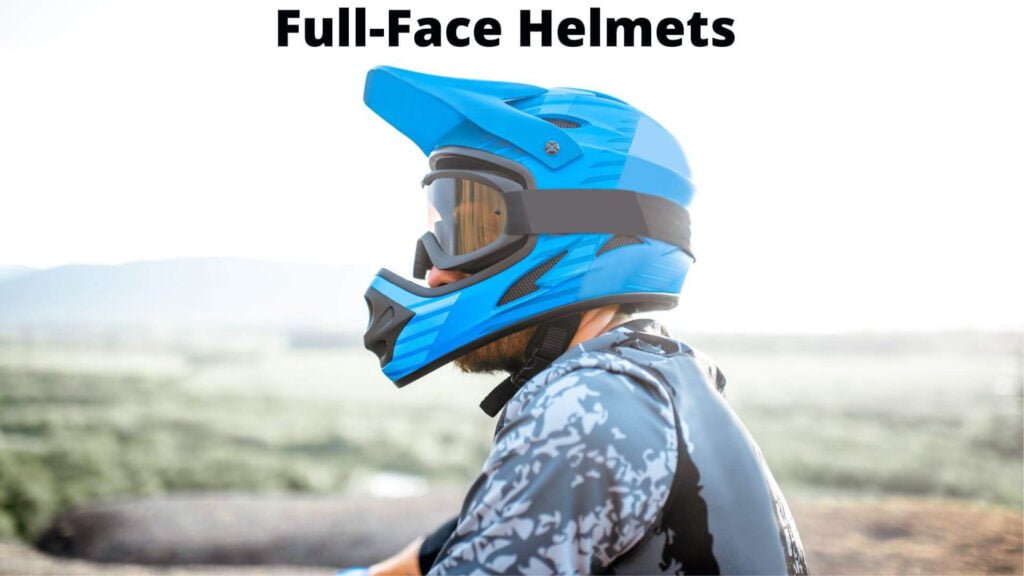
The best protection is provided by full-face helmets, which completely enclose the head and face. Full-face helmets typically have a visor to protect the eyes from wind and debris and a chin guard to protect the lower part of the face.
Full-face helmets are typically considered the safest option because they enclose the rider’s head. As a result, this sort of helmet is heavier than 3/4 helmets or half helmets.
However, this isn’t too awful as one of the lightest full-face helmets. According to their specifications, the ECE-rated Bell Eliminator Carbon weighs 1027 grams. As a result, we may estimate that a full-face helmet weighs between 2.5 and 4.5 pounds.
Open-Face Helmets Weight Ranges
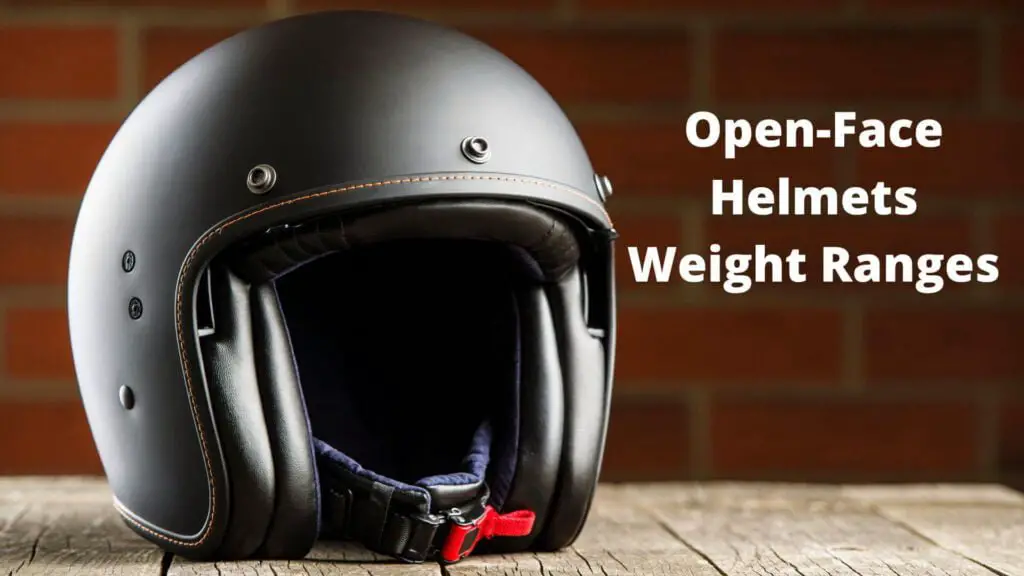
Open-face helmets often have a sun visor to protect the eyes from glare, but they do not have a chin guard.
Because the chin area stays open, open-face helmets are the lightest type of motorcycle helmet.
Fewer materials are utilized, meaning it is more delicate; this may seem apparent, but it is true. For example, the Bell Mag-9, an open-face helmet, weighs approximately 3.4 lbs.
That is equivalent to an excellent full-face helmet. In addition, one of the lightest spotted at 1060 grams in Bell’s helmet details is the Bell Custom 500 Carbon helmet. As a result, the typical weight of an open-face helmet will be between 2 and 4 pounds.
Check Also: Best Budget Motorcycle Helmet.
Half helmets Weight Range
Half helmets only cover the top of the head, exposing the face and neck. Half helmets typically do not have additional features, but some may include a visor or sun shield.
Because of the ability to flip up, modular helmets are slightly heavier than full-face helmets. They are also designed for convenience and commuting.
Additional features include an inbuilt sun visor, com unit compatibility, and more. Some notable exceptions exist, such as the AGV Sportsmodular, which weighs only 1390 grams in the first shell. And, given that the average weight range of a modular helmet is between 3 and 5 pounds.
The Importance of Motorcycle Helmet Safety Standards
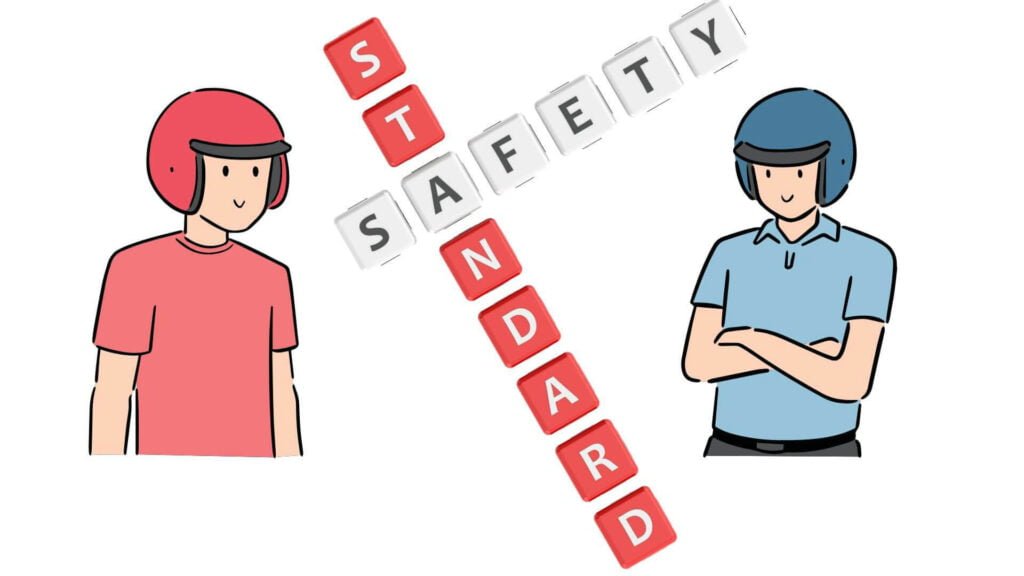
One of the most important benefits of wearing a motorcycle helmet is its increased protection. Motorcycle helmets are designed to protect riders from head injuries during a crash. To be effective, helmets must meet specific safety standards.
There are two primary safety standards for motorcycle helmets: DOT (Department of Transportation) unspecified Snell. DOT is the minimum standard in the United States, while Snell is a more stringent standard that goes beyond the minimum requirements.
Helmets that meet DOT standards have been shown to reduce the risk of fatal head injuries by 37%. Similarly, helmets that meet Snell standards have been shown to reduce the risk of fatal head injuries by 51%.
While no guarantee wearing a helmet will prevent all head injuries in the event of a crash, it is clear that they provide a significant level of protection. For this reason, all motorcycle riders need to wear helmets that meet at least the DOT safety standard.
FAQS About How Much Does a Motorcycle Helmet Weigh
How Heavy Is 4 Lbs For A Helmet?
Helmets today are considerably more modern than in the past due to extensive innovation and improvement. On the other hand, full-face helmets generally weigh four pounds and take up significantly more space. A modular helmet includes a mechanism that increases the density even further.
Which Motorcycle Helmet Is the Lightest?
1. Carbon fiber X-1004 with a volume of 1600 grams.
2. At 1330, I purchased the AGV Pista GP-R.
3. I purchased a red-hot Rai’s RX-7V carbon RC weighing 1400 kilos.
4. AGV SportModular carbon fiber – 1347 grams
5. The Shark Spartan 1.2 Carbon vehicle weighs 1702 grams of carbon.
6. Shark Race-R Carbon Pro carbon 1305 grams
Which Motorcycle Half Helmet Is the Lightest?
One warehouse for each unit of lower cases and lower cases. Slim Line Daytona Helmets Skull Cap Motorcycle Caps are the smallest, lightest, and most acceptable motorcycle helmets on the market today. Developed and approved for use with 1/2 shell motorcycle helmets.
What Is the Weight of a Lightweight Helmet?
Typically, only the summit of the skull is covered, but it weighs less than 3 pounds. Nonetheless, these helmets are often the least safe equipment and may be illegal in some places. They require separate lenses in addition to goggles. Open-head helmets come in second on the weight scale at over 3 lbs.
Final Word
A motorcycle helmet is one of the essential safety equipment a rider can have. It is estimated that helmets reduce the risk of death in a motorcycle crash by 37%. A helmet can also help protect riders from severe injuries like brain damage.
Some helmets are designed for racing, while others are for touring or off-road riding. Each type of helmet has its own set of features and benefits.
When choosing a motorcycle helmet, it is essential to consider the weight, safety standards, and features that are important to you. Finding a fitting helmet can make all the difference in keeping you safe on the road.

Hey, I’m Hrithik Hossain. I am the head of helmethacks.com, which specializes in safety helmets. I am looking to connect with anyone interested in purchasing a helmet or who has any questions about different types of helmets. I have over 8 years of experience as a helmet expert, and I can’t wait to help you find the perfect helmet for you. I can help you with any questions regarding helmets, from the best brands to fitting, style, and more! I really enjoy keeping people safe by ensuring they have the best protection possible.


